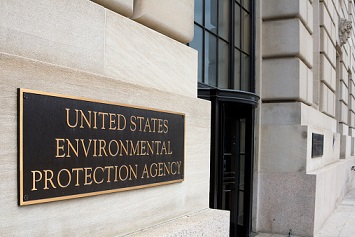In implementing major policies, it is unlikely that Andrew Wheeler, the EPA’s new acting administrator, will differ in any significant way from Scott Pruitt, the man he’s replacing to direct the activities of the Agency’s 14,000 employees (that number is a 20-year low).
In his introductory address to EPA staff, Wheeler said he would continue Pruitt’s environmental priorities—cleaning up Superfund sites, improving the nation’s water infrastructure, and expediting replacement of EPA-authored Clean Air Act federal implementation plans (FIPs) with state-authored state implementation plans (SIPs). Wheeler also called attention to several new areas of importance.
Regulatory Relief and Certainty
Wheeler said President Donald Trump told him to focus on three areas: “Clean up the air, clean up the water, and provide regulatory relief.”
As did Pruitt, Wheeler believes these goals can be met by providing “regulatory certainty.”
“A lack of certainty and clarity hinders environmental protections and creates paralysis in the market place [sic],” said Wheeler. “We will focus on providing certainty in three areas. One, certainty to the states and local governments; two, certainty in EPA’s programs such as permitting and enforcement; and three, certainty in risk communication.”
Regarding permitting and enforcement, Wheeler reiterated several Pruitt objectives, including providing permit applicants up or down decisions within 6 months.
Timely Enforcement
In addition, he placed a new emphasis on taking timely enforcement action. Wheeler said that during his time in private practice, he learned how important it is for companies to timely disclose enforcement actions in their annual shareholder reports.
“When the Agency and our partners at the Department of Justice don’t settle the enforcement actions, they can linger for years, and companies must report them year after year,” said Wheeler. “This hurts the competitiveness of U.S. businesses. It also delays actions that may be necessary to prevent harm to the environment. Let me be clear—I’m not advocating for letting people off the hook or reducing fines. Rather I’m advocating for making enforcement decisions in a timely and consistent manner. Accomplishing this would dramatically improve our relationships with American businesses and take away a lot of the criticisms that are lobbed at the Agency.”
9/11 Lessons on Risk Communication
Wheeler said he was most personally concerned about risk communication and would focus most of his energies in that area.
“Risk communication goes to the heart of the EPA’s mission to protect health and the environment,” said Wheeler. “We must be able to speak with one voice and clearly explain to the American people the relevant environmental and health risks that they face, that their families face, and that their children face.”
Wheeler explained that his concerns about proper risk communication originated after the 9/11 attacks when he was involved in the recovery efforts in New York City. At that time, the EPA was heavily criticized for statements it made about the quality of air around Ground Zero.
“The lesson I took away from that was that we need to be very clear to people when a large incident happens so that they understand the risk they face,” said Wheeler. “And, just as importantly, if the information that we have changes—and it does change, and I recognize that—we need to go back to those same people and explain what changed, why it changed, and what the new information means to them.”
Coal Company Lobbyist
Wheeler also spoke about the dominant criticism directed at him by environmental groups and Democratic lawmakers—his work for a law firm as a lobbyist for the coal-mining company, Murray Energy.
“I had a number of clients,” said Wheeler. “If you read in the press, I only had one, but I actually had over twenty clients, a wide range of clients, working with different companies, trade associations, some private sector clients, some NGOs [nongovernmental organizations], an air quality management district in California. And I did work for a coal company.”
Wheeler added that he was proud of the work he did for Murray, which he did not mention by name, and said the last 4 or 5 years of this work revolved around the Miners Protection Act, which is directed at shoring up pension and healthcare benefits for retired miners.
No Word on the Climate
Conspicuously absent from Wheeler’s 17-minute speech was any mention of climate change, viewed by many as the most pressing environmental challenge of this or any century. However, before entering the private sector, Wheeler worked for years in several capacities for Senator James Inhofe of Oklahoma, arguably the Senate’s fiercest denier that global warming is even occurring. Like Pruitt, Wheeler concedes that the climate is changing but says that science has not yet determined how much human activity is contributing to the change.
Wheeler’s address to EPA staff is here.

